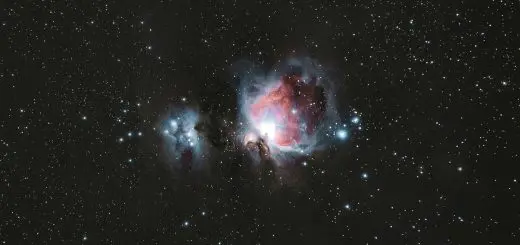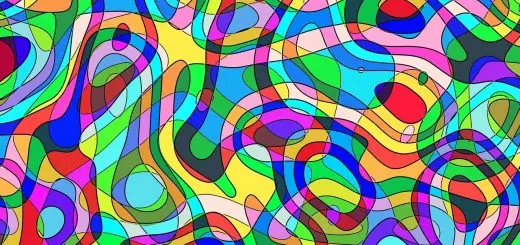Vedanta’s View on Reincarnation and the Cycle of Birth and Death

Looking for more amazing products? Check out our online store and explore our collection here! Happy shopping!
Before diving in, please note: This post is for informational purposes only. If you’d like to know more about how we approach topics, feel free to check out our friendly Disclaimer Page.
Hey there, amazing readers! 
We’re committed to delivering quality posts, and your support (even just sticking around despite the ads) means everything to us. So, bear with us, and thanks for helping us keep the good vibes rolling. Now, on to the fun stuff!
TRANSLATE BUTTON AT THE END OF THE ARTICLE
Understanding Vedanta Philosophy
Vedanta is a school of Indian philosophy that delves deep into the nature of reality and the self.
It is based on the teachings found in the Upanishads, which are ancient texts that form the philosophical backbone of Hinduism.
Vedanta explores the fundamental questions of existence, consciousness, and the interconnectedness of all beings.
At its core, Vedanta seeks to uncover the ultimate truth that lies beyond the material world and individual egos.
The Concept of Reincarnation in Vedanta
Reincarnation, or the belief in the cycle of birth and death, is a central tenet of Vedanta philosophy.
According to Vedanta, the soul (Atman) is eternal and undergoes a series of births and deaths as it evolves towards higher states of consciousness.
Each life presents an opportunity for the soul to learn, grow, and ultimately realize its true nature.
Reincarnation in Vedanta is not viewed as a punishment or reward but rather as a necessary process for spiritual evolution.
Exploring the Cycle of Birth and Death
In Vedanta, the cycle of birth and death is known as Samsara.
This continuous cycle of reincarnation is driven by the law of Karma, which dictates that every action has a corresponding reaction.
Individuals accumulate Karma through their thoughts, words, and deeds, which in turn influences their future births.
The cycle of Samsara is characterized by the soul’s journey through various life forms and experiences, each contributing to its spiritual growth and evolution.
How Karma Influences Rebirth
Karma plays a crucial role in determining the circumstances of an individual’s rebirth in Vedanta.
Positive actions lead to favorable consequences in future lives, while negative actions result in suffering and challenges.
The law of Karma ensures that individuals reap what they sow, guiding their journey through the cycle of birth and death.
By understanding the intricate workings of Karma, individuals can make conscious choices that shape their future incarnations and ultimately lead to spiritual liberation.
The Purpose of Reincarnation in Vedanta
The concept of reincarnation serves a profound purpose in Vedanta.
It provides individuals with the opportunity to learn valuable lessons, resolve past karmic debts, and progress towards self-realization.
Each life offers unique challenges and experiences that contribute to the soul’s growth and evolution.
Reincarnation allows individuals to refine their character, cultivate virtues, and deepen their understanding of the self and the universe.
Ultimately, the purpose of reincarnation in Vedanta is to awaken individuals to their true nature and the interconnectedness of all existence.
Breaking the Cycle of Samsara
While the cycle of Samsara is perpetual, Vedanta offers a path to break free from this cycle and attain liberation (Moksha).
Through self-realization and spiritual practice, individuals can transcend the limitations of the material world and realize their unity with the divine.
By cultivating virtues such as compassion, selflessness, and wisdom, individuals can purify their consciousness and liberate themselves from the cycle of birth and death.
Breaking the cycle of Samsara is a central goal in Vedanta, as it leads to the ultimate freedom from suffering and the cycle of reincarnation.
Reincarnation and Liberation in Vedanta
Liberation, or Moksha, is the ultimate aim of Vedanta philosophy.
It represents the state of self-realization and freedom from the cycle of birth and death.
Through the process of reincarnation, individuals have the opportunity to progress towards liberation by purifying their consciousness and transcending their ego.
Liberation in Vedanta is not an escape from life but a profound realization of one’s true nature as pure consciousness.
It is the culmination of the soul’s evolutionary journey and the attainment of eternal bliss and peace.
Rebirth as a Path to Spiritual Growth
In Vedanta, each reincarnation offers a unique opportunity for spiritual growth and evolution.
By experiencing different life situations and relationships, individuals can learn valuable lessons, overcome challenges, and cultivate virtues such as patience, forgiveness, and love.
Rebirth provides individuals with the chance to refine their character, deepen their understanding of the self, and progress towards self-realization.
Through conscious living and self-reflection, individuals can navigate the cycle of birth and death with awareness and purpose.
Reincarnation in Relation to Dharma
Dharma, or righteousness and duty, plays a significant role in the concept of reincarnation in Vedanta.
Individuals are born into specific life situations and roles based on their past Karma and Dharma.
By fulfilling their duties and responsibilities with integrity and selflessness, individuals can create positive Karma and progress towards spiritual growth.
Dharma guides individuals on the path of righteousness and helps them align their actions with universal principles of harmony and balance.
By living in accordance with Dharma, individuals can navigate the cycle of birth and death with grace and wisdom.
Vedanta’s Perspective on Rebirth and Consciousness
Vedanta teaches that consciousness is the essence of all existence and the true nature of the self.
Rebirth is viewed as a process through which consciousness evolves and expands towards higher states of awareness.
Each reincarnation offers individuals the opportunity to deepen their understanding of consciousness, reality, and the interconnectedness of all beings.
By exploring the nature of consciousness through self-inquiry and meditation, individuals can uncover the eternal truth that underlies all of existence.
Reincarnation in Vedanta is a journey towards self-realization and the realization of the oneness of all creation.
The Role of Self-Realization in Reincarnation
Self-realization, or the direct experience of one’s true nature as pure consciousness, is the key to breaking the cycle of reincarnation in Vedanta.
Through self-inquiry, meditation, and spiritual practice, individuals can transcend the limitations of the ego and realize their eternal identity with the divine.
Self-realization liberates individuals from the cycle of birth and death by unraveling the illusions of the material world and revealing the eternal truth that underpins all of existence.
By attaining self-realization, individuals can awaken to their true nature and experience the ultimate freedom and bliss of liberation.
Practical Implications of Vedanta’s View on Reincarnation
Understanding Vedanta’s view on reincarnation has practical implications for how individuals live their lives.
By recognizing the interconnectedness of all beings and the law of Karma, individuals can make conscious choices that align with universal principles of harmony and balance.
Practicing virtues such as compassion, selflessness, and integrity can lead to positive consequences in future lives and accelerate spiritual growth.
By cultivating self-awareness and mindfulness, individuals can navigate the complexities of the cycle of birth and death with wisdom and grace.
Vedanta’s perspective on reincarnation offers a roadmap for spiritual evolution and self-realization, guiding individuals towards the ultimate goal of liberation.
Conclusion
In conclusion, Vedanta’s view on reincarnation and the cycle of birth and death provides a profound insight into the nature of existence and the journey of the soul towards self-realization.
Reincarnation in Vedanta is not a random or arbitrary process but a purposeful journey of spiritual evolution and growth.
By understanding the concepts of Karma, Dharma, and self-realization, individuals can navigate the cycle of birth and death with awareness, purpose, and grace.
Reincarnation in Vedanta offers a path to liberation and ultimate freedom from suffering, leading individuals to the realization of their true nature as eternal consciousness.
Through self-inquiry, meditation, and virtuous living, individuals can break free from the cycle of Samsara and experience the blissful state of Moksha.
Vedanta’s perspective on reincarnation serves as a guiding light for those seeking spiritual growth, self-realization, and liberation from the illusions of the material world.

The Enlightenment Journey is a remarkable collection of writings authored by a distinguished group of experts in the fields of spirituality, new age, and esoteric knowledge.
This anthology features a diverse assembly of well-experienced authors who bring their profound insights and credible perspectives to the forefront.
Each contributor possesses a wealth of knowledge and wisdom, making them authorities in their respective domains.
Together, they offer readers a transformative journey into the realms of spiritual growth, self-discovery, and esoteric enlightenment.
The Enlightenment Journey is a testament to the collective expertise of these luminaries, providing readers with a rich tapestry of ideas and information to illuminate their spiritual path.
Our Diverse Expertise
While our primary focus is on spirituality and esotericism, we are equally passionate about exploring a wide range of other topics and niches 

To ensure we provide the most accurate and valuable insights, we collaborate with trusted experts in their respective domains 
Our blog originally focused on spirituality and metaphysics, but we’ve since expanded to cover a wide range of niches. Don’t worry—we continue to publish a lot of articles on spirituality! Frequently visit our blog to explore our diverse content and stay tuned for more insightful reads.
Hey there, amazing reader! 
Check out our store here and take a peek at some of our featured products below! Thanks for being awesome!











